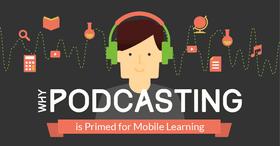Finding a private school job was fairly simple years ago. You kept your resume and curriculum vitae up to date, did a bit of networking, attended a couple of professional conferences and that was pretty much it. News of job openings would come your way. You followed up with your application, were interviewed and, hopefully, won the appointment. It doesn't work that way any more.
As a result many teachers and administrators used to doing things the old way will look askance at the idea of using online sites and online tools to conduct their private school job search. I would suggest that you might want to think twice before you cast aspersions on these new ways of finding a job. You just might be on your way to becoming a digital dinosaur. Now, you wouldn't want to be a digital dinosaur, would you?
First of all, understand that online tools are simply that - tools. A chisel in the hands of a novice makes clumsy cuts and produces amateurish results. The same is true of most online tools and social media. You need to learn how to use them effectively to land the job you really want. Each of these tools and applications is effective when used by itself. But for the best results I recommend that you use all of them. Using these new tools effectively takes practice and patience. You cannot realistically expect results within hours of your first posts. Give it time.
Let's focus on the pros and cons of using social media in your job search.
Pros
Create a presence.
LinkedIn, Twitter, Facebook and YouTube allow anybody anywhere to create an online presence for themselves. People may recognize your name and want to learn more about you. These tools offer you a way to get yourself noticed. Yes, you will be noticed by people who are looking for candidates to fill positions within their schools. This short video from Forbes gives you some useful tips.
Stand out from the crowd.
With thousands of people vying for a few openings it is very important for you to use social media to help you stand out from the competition. Be careful how you do this. I am not talking about your making sensational comments. What I am suggesting that you do is to participate in discussions. It is one of the easiest ways to get noticed. Make sure you subscribe to or belong to professional associations and affinity groups relative to your academic interests. If educational technology is your thing, then you should belong to and participate in the informative discussions on ISED-L.
Use the same approach with whatever affinity group you decide to join. Observe and get a feel for what the group is all about for a couple of weeks. Then join in the conversation. This is a great opportunity for you to show your thoughtfulness, knowledge of your subject matter and your collegiality.
Prove your competence.
You may have a degree from Cambridge University. But if you keep your learning hidden from others, how are they going to know that you are passionate about, and, indeed, are an authority on Spanish novellas? Joining in the discussions, tweeting about an article you have seen, or, better yet, which you yourself have written, will go a long way to getting you noticed at least in the circles which really matter. These circles of your peers will valuable sources of information. Participate. Be helpful. This brief interview illustrates how important social media is in today's job searches.
Once again, the social media and online tools are merely a means to an end. The secret to finding a really great job in any profession is having people who can vouch for you and your accomplishments. On every private school job application is a section for professional references. These referees must know you and your work intimately. Building your online network is an essential way of accomplishing this.
How does LinkedIn fit in?
Some education professionals seem to think that LinkedIn is only for business people. I looked everywhere and I could find nothing on LinkedIn which says that it is only for business people. On the contrary I found several groups for educators generally and even a couple for private schools specifically.
One of LinkedIn's strengths is that you can develop a detailed timeline of your job history, education and professional accomplishments. That kind of detailed information will also be available in your printed curriculum vitae. However, having it online allows interested parties to peruse your history quickly and without requesting materials from you. Another thing which LinkedIn does well is to allow you to ask your colleagues to write recommendations for you. You also can write recommendations for them as well. Prospective employers often use LinkedIn to confirm information which they may have found from other sources.
What about Twitter?
I use Twitter to tweet news and information about private schools to my followers. I try to schedule one or two tweets a day. I personally feel that any more tweets than that is excessive. Follow other people in your profession and observe how they use Twitter. Then adapt this powerful social media tool to your needs and requirements.
The Cons
The biggest negative about putting anything online is that it is out there for everybody to see. So be very, very careful about what you say and how you say it online. If you have extremist views at either end of any spectrum, you might want to keep your opinions and commentary to your offline circle. In a similar vein, photos of you at a fraternity party quaffing a stein of beer might seem harmless enough until somebody uses it to sabotage your chances of getting that dream job.
LinkedIn lends itself to robust professional networking. It presents a portrait of you and your accomplishments That portrait can be as complete and detailed as you wish it to be. Facebook, on the other hand, reveals your personal side. As a result it makes sense to me to restrict access to Facebook to Friends and Family.
Establishing yourself online requires new ways of looking at how to present yourself and your accomplishments. Get it right and you will have thousands of loyal followers hanging on your every word. Get it wrong and it could be a disaster which will be hard to recover from.
Read what Alison Doyle has to say on the subject. She has lots of useful information and advice on her Job Search and Career Networking page.
Comments? Questions? You can contact me via Twitter @privateschl






















